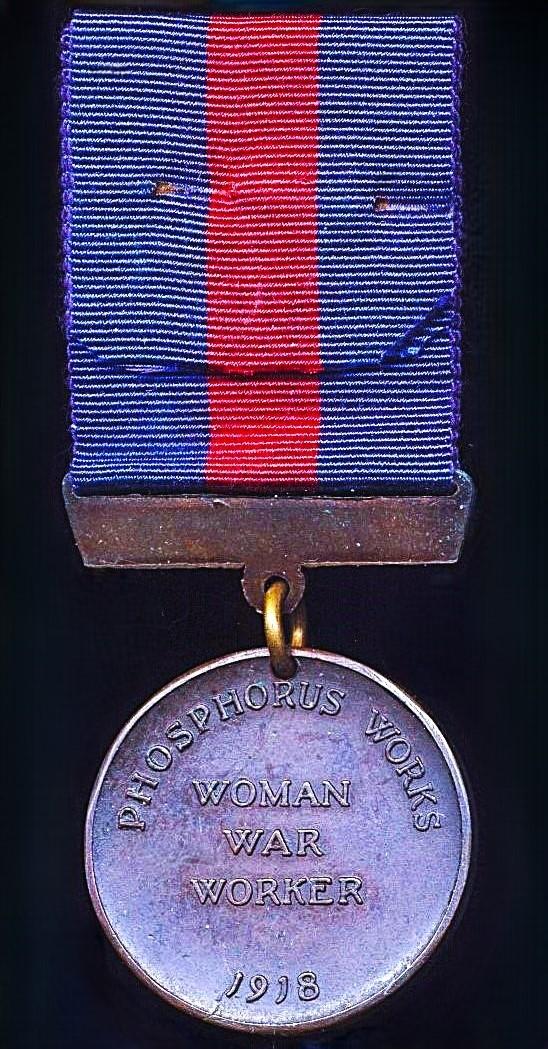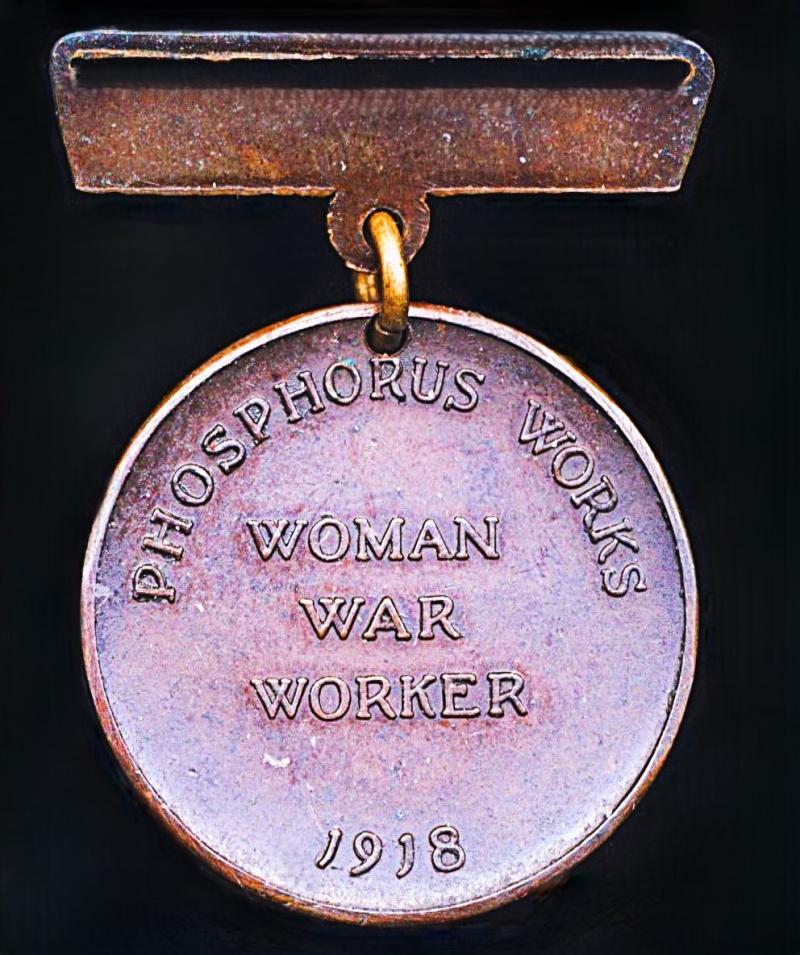Albright & Wilson Ltd: Phosphorus Works Woman War Worker Medal 1918. Bronze, unnamed as issued
Reference '100 Years of Phosphorus Making 1851-1951 (E. Threlfall, 1951)
Quote,
One great change wrought by the war was the employment of women and girls in the works, at first without enthusiasm on the part of the management but by degrees with admiration for the variety of jobs they undertook. Most of them gave up the work at the end of the war, when Mrs Bate, the supervisor, and her welfare workers were present at a farewell concert given by the girls themselves at the Institute Hall in Langley. They and the company’s other workers received a war medal struck by A. & W.
Unquote.
In 1918, Albright and Wilson Ltd - of Oldbury, West Midlands, located in the 'Black Country' - manufactured white phosphorus (WP) for use in smoke-generating and incendiary munitions (bombs, shells, grenades)
While not classified strictly as a chemical weapon (it is an incendiary/smoke agent), white phosphorus munitions were used extensively by British forces during the Great War
Between 1914 to 1918, Albright and Wilson's annual production of phosphorous for military munitions rose from one quarter million pounds in 1914, to six million pounds in 1918
The primary lethal chemical weapons used on the battlefields in 1918 were chlorine, phosgene, and mustard gas. Albright and Wilson's key contribution to the war effort was centered on phosphorus production for incendiary and smoke applications
Albright and Wilson - and their women workers - was the sole producer of phosphorus in the UK during both World Wars and produced the material for the Admiralty, War Office, and Air Ministry
A rare 'Home Front' Great War medal awarded to women workers engaged in the extremely hazardous production of war munitions for Naval and Military ordnance
Condition: VF
Code: 25605






